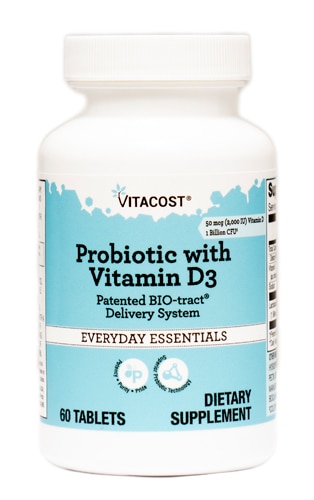For decades, vitamin D has been hailed as the patron saint of strong bones. Its health halo has been stretched to include support for immune health and the nervous system.† Today, according to 2018 survey issued by Consumer Lab, consumers take more D than any other supplement.
While no one disputes the need for vitamin D, much controversy surrounds the question of how to define vitamin D deficiency. The measurement for an ideal vitamin D level has historically been problematic and difficult to standardize—and experts don’t agree on an optimum amount. P
lus, a growing body of research has debunked much of the vitamin D hype, throwing some shade on its sunny reputation. To help shed more light on a murky subject, here’s the lowdown on how much vitamin D you actually need.
What is vitamin D?
Recent research has challenged several of vitamin’s D sworn benefits, most notably as protection against fractures and falls. Studies show that vitamin D helps our bodies absorb calcium, which helps keep bones healthy. If you don’t have enough of it, bones may become thin, brittle and misshapen, a condition called rickets in children and osteomalacia in adults.
Because vitamin D supports how well your body absorbs calcium, it also helps keep your muscles, nerves and immune system healthy. However, unless you are truly deficient in vitamin D, it offers no significant protection from fall-related fractures.†
And the prevailing assumption of Vitamin D as a panacea that could affect the odds of having a heart attack or a stroke or developing cancer (for example, breast, prostate, or colorectal cancers) did not pan out, according to the large nationwide, still ongoing Vitamin D and Omega-3 Trial (VITAL ) which assessed more than 25,000 participants. So far, the study’s finding show that a vitamin D supplement did not lower rates of heart attack, stroke, or cancer.†
Can I get enough Vitamin D from the sun alone?
Our bodies makes vitamin D from cholesterol when our skin is exposed to sunlight (in addition to absorbing it from certain foods). But it’s hard to get enough from diet or sun alone, especially with the growing awareness of the dangers of sun exposure. The vitamin D council provides the following examples of exposure requirements. To get adequate vitamin D from the sun, “at noon during summer in Miami, someone with a medium skin tone would need to expose one-quarter of their skin to sunlight for 6 minutes. At noon during summer in Boston, someone with a darker skin tone would need to expose one-quarter of their skin to sunlight for 2 hours.” If you aren't being exposed to sun, your daily intake needs may be higher. There are also specific lifestyle factors to consider, such as whether you stay indoors, always cover your skin, or use a high sun protection factor sunscreen every day.
Can I get Vitamin D from food?
Vitamin D is found mainly in fatty fish and fortified dairy products, though it's tough to get enough from diet alone.
How much Vitamin D do I need?
In 2014, the U.S. Preventive Services Task Force, a federally funded panel of health experts, said no consensus exists on the definition of vitamin D deficiency or the optimal level. This is still the case. However, the recommended daily intake (RDI) is usually around 400–800 IU (10–20 micrograms), but many experts say you should get even more than that. According to the Mayo Clinic, “recommendations for how much daily vitamin D adults need through diet have changed over the years. For example, the Endocrine Society recommends up to 1,500 to 2,000 IU of vitamin D daily for adults.” Further complicating the issue: How well your body absorbs vitamin D, which varies according to the individual.
Should I take a test?
When people began to fear that they weren’t getting enough vitamin D, sales of the vitamin skyrocketed. As vitamin D surged in popularity, so did the demand for vitamin D testing. According to the New York Times, “Doctors ordered more than 10 million for Medicare patients in 2016, up 547 percent since 2007, at a cost of $365 million.” But in recent years, a number of insurers and health experts have begun to view widespread vitamin D testing as unnecessary. According to the U.S. Preventive Services Task Force, there is still not enough evidence to warrant routine vitamin D screening.
Can I take too much Vitamin D?
Although the amount of vitamin D in a typical daily supplement is generally considered safe, it is possible to take too much. For example, a 2010 study published in JAMA showed that intake of very high doses of vitamin D in older women was associated with more falls and fractures. More recently, a 2015 study published in the American Journal of Medicine linked blood levels as low as 50 micrograms with an increased risk of death. The current trend in dosage, in the interest of safety, seems to be leaning to more conservative levels, rather than aggressively high amounts. According to the Mayo Clinic, “1,000 to 2,000 IU per day of vitamin D from a supplement is generally safe, should help people achieve an adequate blood level of vitamin D, and may have additional health benefits.”
Bottom line:
When it comes to vitamin D, more is not necessarily better. In fact, more can be worse. To prevent deficiency, the Institute of Medicine has suggested the recommended dietary allowance, or RDA, for vitamin D at 600 international units (IU) per day for young adults and 800 IU per day for adults older than 70. If you do have certain health conditions that may limit your vitamin D absorption, it may be prudent to check with your healthcare provider if a vitamin D screening would be beneficial.
†These statements have not been approved by the Food and Drug Administration. These products are not intended to diagnose, treat, cure or prevent disease.




